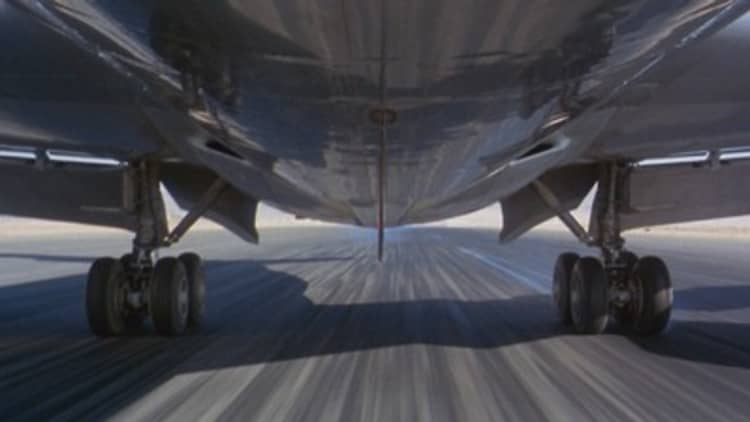
Record numbers of travelers are taking to the skies. So what happens if there's no seat for you?
Airlines have for years sold more seats than they have on board, a legal practice that has allowed them to manage inventory: No airline wants a seat to go empty if a traveler cancels at the last minute.
Luckily, the rate of airline bumping has declined in recent years to a record low. Last year, U.S. airlines denied boarding to 0.3 people per 10,000 passengers, according to the U.S. Department of Transportation.
Airlines have tried to offer passengers more money, to avoid having to choose passengers to take later flights themselves.
In April 2017, passenger David Dao was violently dragged off a United Express flight after he refused to make room for commuting crew. The fiasco sparked an uproar from consumers. In the wake of the scandal, United said it would raise the amount of compensation it offers to travelers who volunteer to take later flights to as much as $10,000. One passenger received a travel voucher for that amount in March when there weren't enough seats on her flight. Delta announced a similar ceiling in compensation for bumped travelers.
Here's what you're entitled to:
Passengers could opt to take a later flight in exchange for compensation. But they can also be involuntarily bumped, when there are no volunteers.
Airlines often select which passengers to bump based on the fare paid and the passenger's frequent flyer status.
If you're involuntarily bumped, you are likely entitled to some money from the airline.
Some airlines may try to offer vouchers or free tickets, but the Department of Transportation says travelers have the right to demand a check.
Passengers are not entitled to compensation if the airline involuntarily denies them boarding due to its use of a smaller aircraft (say, in the event of a mechanical problem) or if the traveler arrives late to the gate.
Just how much involuntarily bumped passengers are entitled to depends on how quickly the airline can get the traveler to his or her destination.
- If the new flight arrives within an hour of the original flight's scheduled arrival time, airlines aren't required to pay anything.
- If the arrival time is between one and two hours later, passengers are entitled to 200 percent of the one-way fare, up to $675.
- If the new flight gets in more than two hours later for a domestic flight or more than four hours if the trip is international, passengers are entitled to 400 percent of the one-way fare, with maximum compensation set at $1,350.
- The airline must also refund fees for a la carte services like seat selection or a checked bag if travelers do not receive those services on the new flight.
Travelers can always push for more. This can include asking for more compensation to cover any additional costs like meal vouchers, transportation and lodging.


